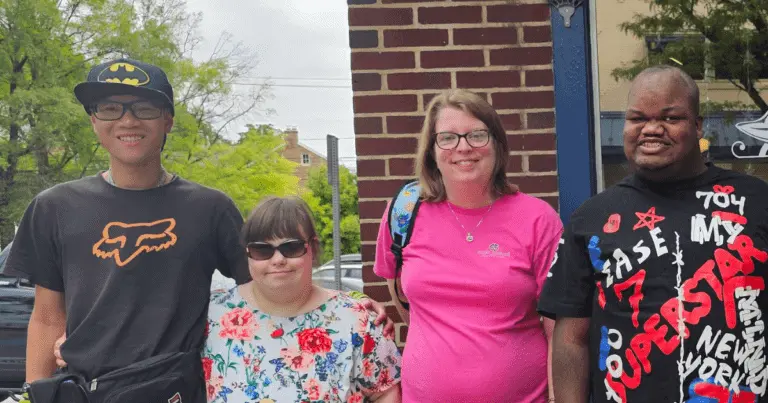Maryland Disability Services: A Guide
Bello Machre provides a guide for Maryland families searching for services and supports for their loved ones with intellectual & developmental disabilities.

Individuals with intellectual and developmental disabilities – like all people – have every right to live, love, work, play, and pursue their aspirations in their community. Those rights are protected under federal and state laws, which ensure children, adults and seniors with disabilities have access to the services and support they need to lead full, independent, and rich lives.
Identifying and applying for the right services and support for your loved one with a disability might seem overwhelming. Rest assured, Maryland has many organizations and programs that serve its residents with disabilities. The majority of services for those under the age of 21 are offered through the Maryland Special Education Services. These might include early intervention programs, individualized education plans (IEPs), post-secondary school transition, and more. To supplement those programs, and for individuals over the age of 21 (including youth transitioning to adulthood, adults and seniors) the following guide serves as a roadmap to find your loved one the best services and supports available throughout the state.
Start with the Maryland Developmental Disabilities Administration (DDA)
The Maryland Developmental Disabilities Administration (DDA) is the primary Maryland state agency that funds community-based services and supports for people with developmental disabilities. Through a coordinated, community-based service delivery system, the DDA ensures that individuals with disabilities receive services that help achieve the goal of full integration into their community. This system includes home and community-based services and supports provided through a Medicaid State Plan, Medicaid Waiver program, or DDA state-funded services. People also receive help from family, friends, and independent community organizations and programs.
To be eligible for services and funding, your loved one must have a disability that meets certain criteria, including preventing them from independently meeting their daily activities. You can start by applying for eligibility through the DDA. This application is crucial to unlocking services and support for your loved one. Once you’ve completed the DDA Application for Eligibility and supporting documentation, the DDA will assign a Coordinator of Community Services (CCS) to interview your loved one in person and make any appropriate updates to your application. Finally, a determination will be made regarding your loved one’s eligibility.
Learn More About Bello Machre’s Disability Services
Work with your CCS, who serves as your disability services advocate
Your CCS is your disability services advocate. They will help individuals with developmental disabilities and their families learn about resources in the community, access services and support, and plan for their future.
Core to this process is Person-Centered Planning (PCP), which is developed by and for individuals with disabilities so they could stay in charge of their plans. The PCP ensures your loved one with a disability is at the center of planning a vision for their self-defined good life, and is able to achieve their goals, live the life they desire, and reach their vision of a fulfilling life.
Your CCS also will help you create a Health Risk Screening Tool (HRST), which is used to detect health risks and destabilization early. The HRST assigns scores to 22 health and behavior-related rating items. Scores range from 1 to 6, with 1 being the lowest risk for health concerns and 6 being the highest risk of health concerns.
With your loved one’s PCP plan and HRST created, your CCS will begin to locate and apply to services for your loved one.
Visit disability service providers in person
Once your CCS has worked with you to prioritize disability service providers, the next step will be visiting them. For example, here at Bello Machre, we give you and your loved one the opportunity to visit our residential homes across Anne Arundel County and Carroll County, meet with directors to ask any questions and observe community-based programs in action. Working closely with your CCS, we help you and your loved one understand all available options and begin applying for the most suitable programs and services.
And, don’t forget to ask about employment programs. Bello Machre offers Employment Services, including career coaches, support with resume development and interviewing, on-the-job mentoring, and lifetime career support. The key here is to remember that you do not have to do this planning alone. Providers such as Bello Machre have well-trained teams to help you navigate all their programs and services to ensure your loved one with a disability is set up for success, whatever that means to them. And, your CCS has the experience and expertise to recommend the best providers of services for your loved one.
Don’t forget about caregiver support
Finally, serving as a caregiver for a person with an intellectual and developmental disability can be incredibly rewarding, but also difficult. Below are general resources for caregivers to address and prevent burnout, which is a state of physical, emotional, and mental exhaustion.
- Managing Stress and Preventing Burnout
- Caregiver Burnout, Cleveland Clinic
- Caregiver Stress and Burnout
- NADD & NADSP Summer Webinar Series: Session 3: Dangerous Empathy: Burnout, Compassion Fatigue & Empathetic Distress
Caregivers in Maryland can reach out to A Mother’s Rest, which is designed to provide affordable and recuperative respite for parents and caregivers.
No matter where you are on your journey to find the right services and support for your loved one, Bello Machre can help. Whether you haven’t yet started or have reached a bump in the road, please reach out to us for guidance. And remember, Maryland abounds with programs to support those with disabilities. With the right guidance and assistance, you’ll be on your way to ensuring your loved one has the right infrastructure in place so they can achieve the life they want based on a plan they’ve created.
